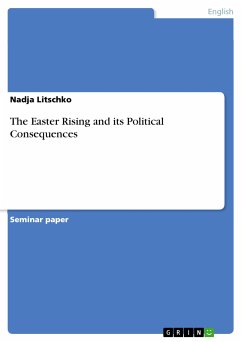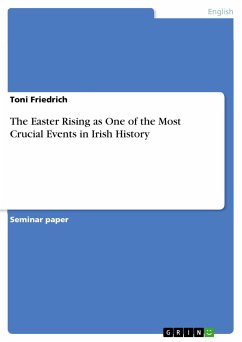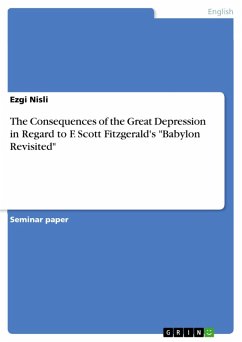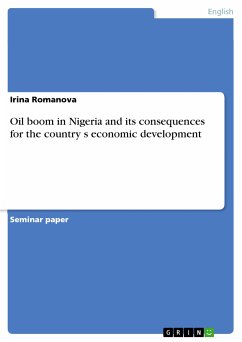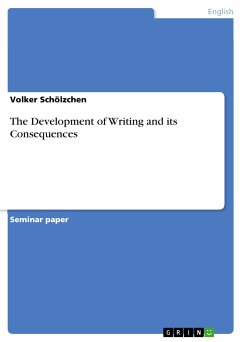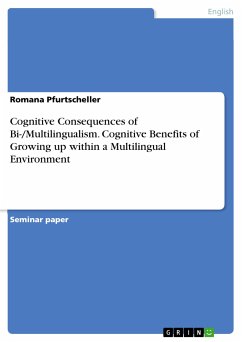Seminar paper from the year 2004 in the subject American Studies - Culture and Applied Geography, grade: 2 (B), http://www.uni-jena.de/ (Institute for Anglistics/American Studies), course: S: 'Rule, Britannia...' English Cultural History, ca. 1815 - 1900, language: English, abstract: The history of Ireland is a turbulent one full of mysterious customs, fiery battles and unwavering pride. Many events have given account to the repeated struggle of the Irish people against invasion and the loss of their freedom. Such an incident also took place in the year 1916. It was probably one of the most important occurrences in Irish history, and it shaped the future of the country for many years to come, all the way until the present time. The event in question is until today known as the Easter Rising. On Easter Monday, the 24 April 1916, a siege was organized that lasted only for 5 days and ended in a massacre. However, the consequences of this comparatively small act of revolution were enormous. The Easter rising heavily influenced the political relations between Ireland and England during the years that followed, and was the foundation stone of Ireland’s militant fight for independence. The aim of this paper will be to show that the Easter Rebellion of 1916 was the crucial event in the history of modern Ireland, and that it profoundly shaped political relations with England for many years afterwards. The first chapter will consist of a synopsis of the proceedings leading up to the rising, and the naming of possible reasons for the rebellion. Following will be a recount of the happenings on that fateful Easter Monday and the four days after, including the results of the upheaval and the subsequent reactions of the British government. Lastly it will be dealt with the consequences of the Easter rebellion, and how it influenced the political proceedings in the years following 1916.

